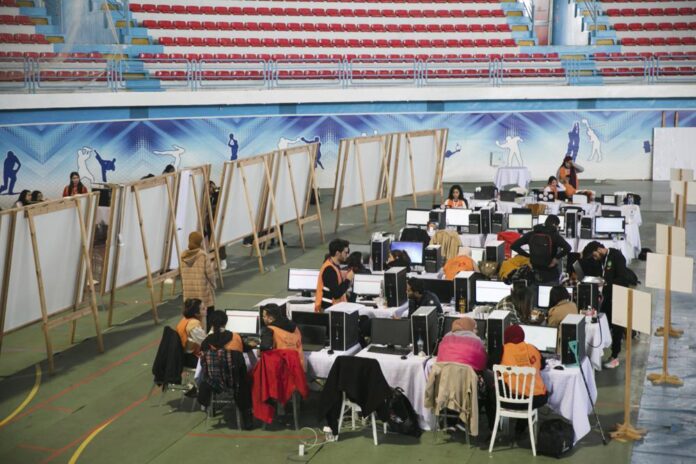TUNIS, Tunisia (AP) — Tunisia was once the Arab world’s hope for a new era of democracy. Now it’s in the midst of an election that’s more of an embarrassment than a model.
Barely 11% of voters turned out in the first round of parliamentary elections last month, boycotted by opposition Islamists and ignored by many Tunisians disillusioned with their leaders.
Ten candidates secured seats in the legislature even though not a single voter cast a ballot for them, simply because they ran unopposed. In seven constituencies, not even one candidate bothered to run.
President Kais Saied is pinning his hopes on Sunday’s second round of voting, which will wrap up his sweeping redesign of Tunisian politics that began when he suspended the previous Parliament in 2021.
The new body will have fewer powers than its predecessor and risks being little more than a rubber stamp for Saied. The president and many Tunisians blamed the previous parliament, led by the Islamist party Ennahdha, for political deadlock seen as worsening the country’s protracted economic and social crises.
Some Ennahdha officials have been jailed and the party is refusing to take part in the parliamentary elections, and has held repeated protests.
In last month’s first-round voting, 23 candidates secured seats outright in the 161-seat parliament: 10 of them because they ran unopposed and 13 because they won more than 50% of the vote, according to election officials.
In Sunday’s second round, voters are choosing among 262 candidates seeking to fill the 131 remaining seats. In the seven constituencies with no candidate, special elections will be held later to fill the seats, likely in March.
Since Saied was elected president in 2019 with 72% of the vote, his support among Tunisians has dulled.
Analysts note a growing crisis of confidence between citizens and the political class since Tunisia’s 2011 revolution unleashed Arab Spring uprisings across the region, and led Tunisians to create a new democratic political system celebrated with a Nobel Peace Prize in 2015.
Daily life for Tunisians seems to keep getting worse. At a Tunis food market, vendors struggled to sell strings of dates, fish heaped on ice, piles of eggplants and herbs as shoppers lamented rising prices. Few seemed to think Sunday’s vote would solve their problems.
Successive elections “have brought me nothing,” sighed Mohamed Ben Moussa, an employee of a private company.
Meanwhile, the economy is teetering.
According to the latest figures from the National Institute of Statistics, unemployment has reached more than 18% and exceeds 25% in the poor regions of the interior of the country, while inflation rate is 10.1%.
Tunisia has been suffering for several years from record budget deficits that affect its ability to pay its suppliers of medicines, food and fuel, causing shortages of milk, sugar, vegetable oil and other staples.
The Tunisian government is currently negotiating a $1.9 billion loan from the International Monetary Fund, which was frozen in December.


